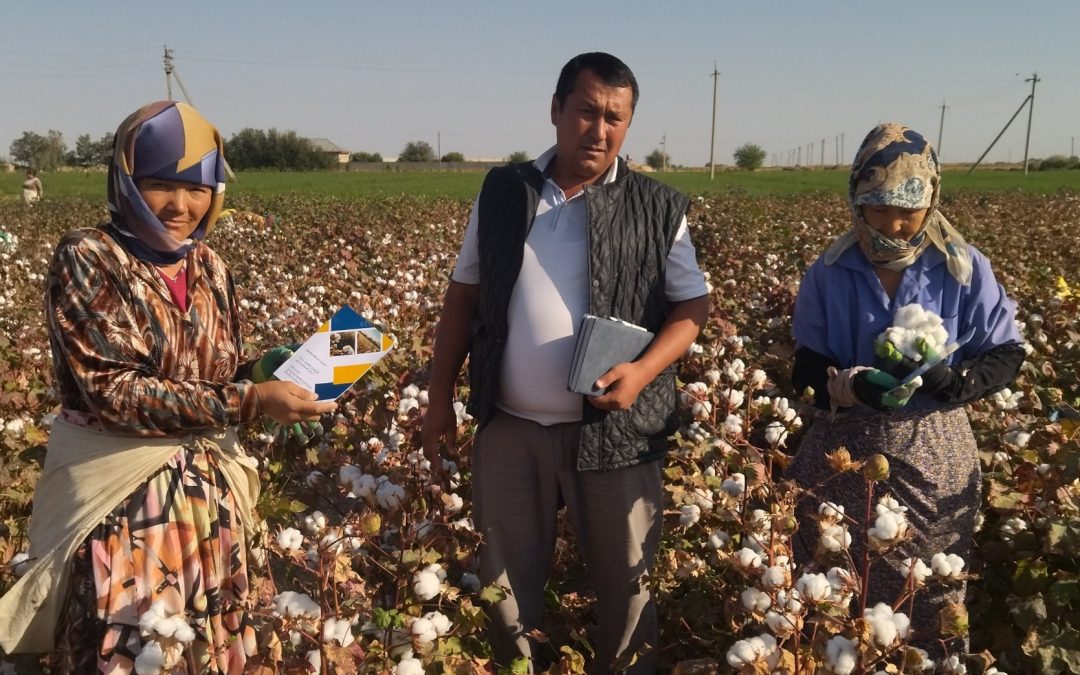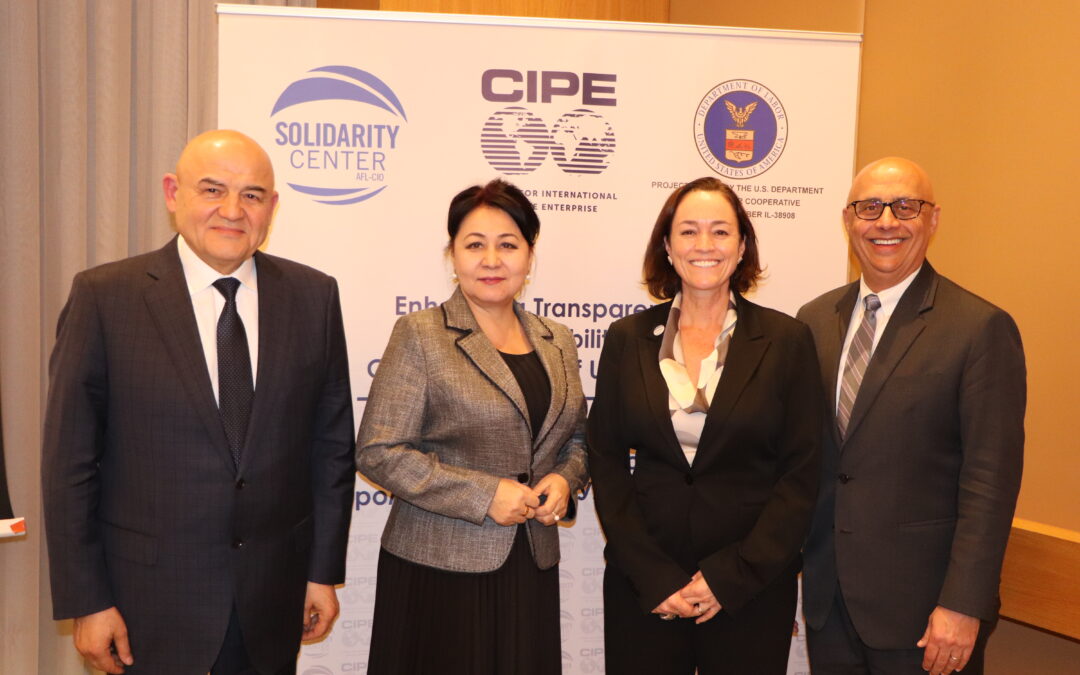
Protecting Labor Rights in Uzbekistan’s Cotton Sector
World Cotton Day – October 9, 2024: As ubiquitous as cotton is in our everyday lives, the workers who produce and harvest this foundational crop are often invisible. This was long the case in Uzbekistan, where for decades the government forcibly mobilized millions of people, sometimes including children, to harvest cotton for state-owned enterprises. A long-running global advocacy campaign led by the Cotton Campaign, of which Solidarity Center was a founding member, helped push the government to implement reforms that brought that system to an end in 2021.
Ending state-organized forced labor was a major accomplishment, but establishing just and equitable working conditions in the cotton sector is a longer journey. With support from the U.S. Department of Labor, the Solidarity Center is working to put in place building blocks that will allow workers to ensure their rights are protected. The Solidarity Center signed an agreement with the Ministry of Employment and Poverty Reduction of the Republic of Uzbekistan and the project’s co-implementing partner, the Center for International Private Enterprise (CIPE), in December 2022 to begin project work. As the 2023 harvest season gets underway, Solidarity Center and CIPE are working closely with stakeholders in government, civil society and business to work from the field up and from oversight authorities down to build knowledge within the cotton sector about fundamental rights and strengthen mechanisms to ensure those rights are secured.
For the 2023 harvest, this includes:
- In collaboration with the ministry’s labor inspection and legal team, the Solidarity Center and CIPE have prepared and printed more than 10,000 leaflets for distribution to cotton pickers during the ongoing harvest season. These leaflets provide cotton pickers with accessible and comprehensive information about their fundamental rights as seasonal workers under Uzbekistan’s Labor Code. The content covers essential worker protections and includes critical contact information, such as the Labor Inspection hotline and a project-run Telegram channel, where workers can anonymously report violations and seek free legal consultation. The leaflets have been also distributed to groups working in different regions across Uzbekistan to maximize outreach. This initiative plays a crucial role in raising awareness among seasonal workers, ensuring they are informed of their rights and the enforcement mechanisms available to them if their rights are violated. Providing clear and accessible information about legal protections and enforcement channels will be essential to empowering cotton workers to assert their rights, and increased awareness is critical to improving compliance with international labor standards, which is the route to creating a more sustainable and transparent cotton sector.
- The Solidarity Center, in partnership with the Tashkent Mediation Center and the State Labor Inspectorate, successfully conducted a two-day training session October 2–3 in Tashkent aimed at enhancing the capacity of mediators to resolve individual labor disputes. The training, facilitated by a regional expert, introduced participants to mediation as an alternative mechanism for labor dispute resolution. The comprehensive curriculum, a blend of theoretical knowledge and practical exercises, equipped 10 mediators from the Tashkent Mediation Center and Labor Inspection staff with the skills to mediate and effectively resolve individual labor disputes. The head of the Labor Inspectorate emphasized the importance of continued collaboration and capacity building as critical to providing workers in the cotton sector with an effective remedy for labor rights violations.
These harvest-period activities supplement an ongoing rights awareness and education program the Solidarity Center and CIPE are implementing with workers and employers in the cotton sector. A core priority of that program in the coming year will be to ensure that all workers in the cotton sector have a written employment contract with clear, enforceable conditions of work. Employment contracts are vital to healthy labor relations that, unfortunately, are absent in many agricultural supply chains.
Recent reforms in Uzbekistan requiring labor contracts for all workers in cotton production have the potential to help the country distinguish itself as a high-road option for textile sourcing, if those reforms can be implemented and enforced. Developing workplace-level reporting and monitoring systems for workers to verify their rights are being respected, and to seek remedy if they are not, will be an important next step to positioning Uzbekistan as a leader in developing sustainable and just textile supply chains.
Funding is provided by the United States Department of Labor under cooperative agreement number IL-38908-22-75-K, through a sub-award from the Solidarity Center. 100% of the total costs of the project or program is financed with federal funds, for a total of $1,018,814. This material does not necessarily reflect the views or policies of the United States Department of Labor, nor does mention of trade names, commercial products, or organizations imply endorsement by the United States Government.

